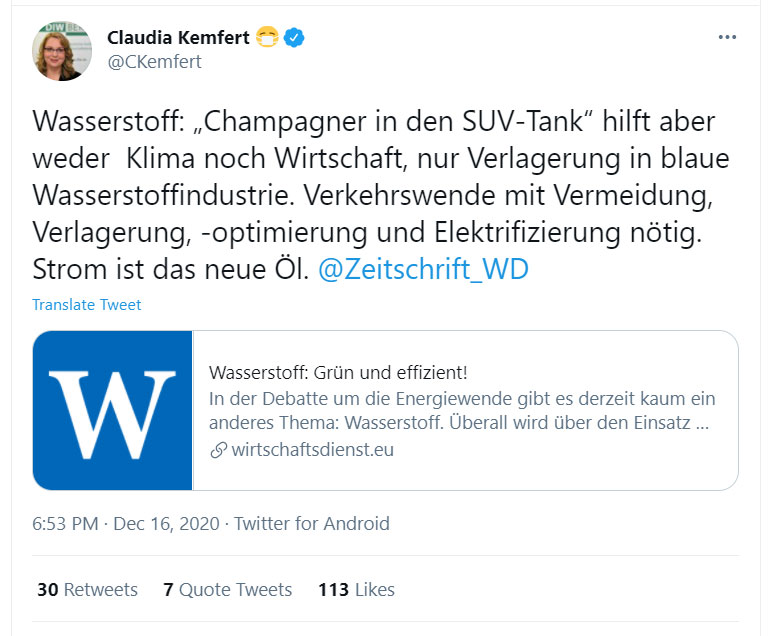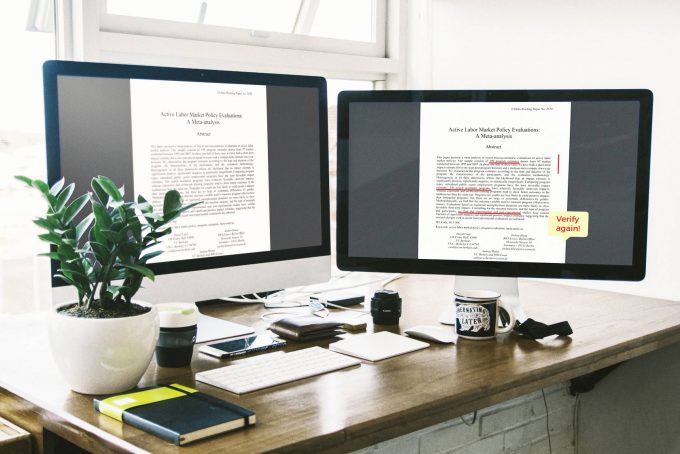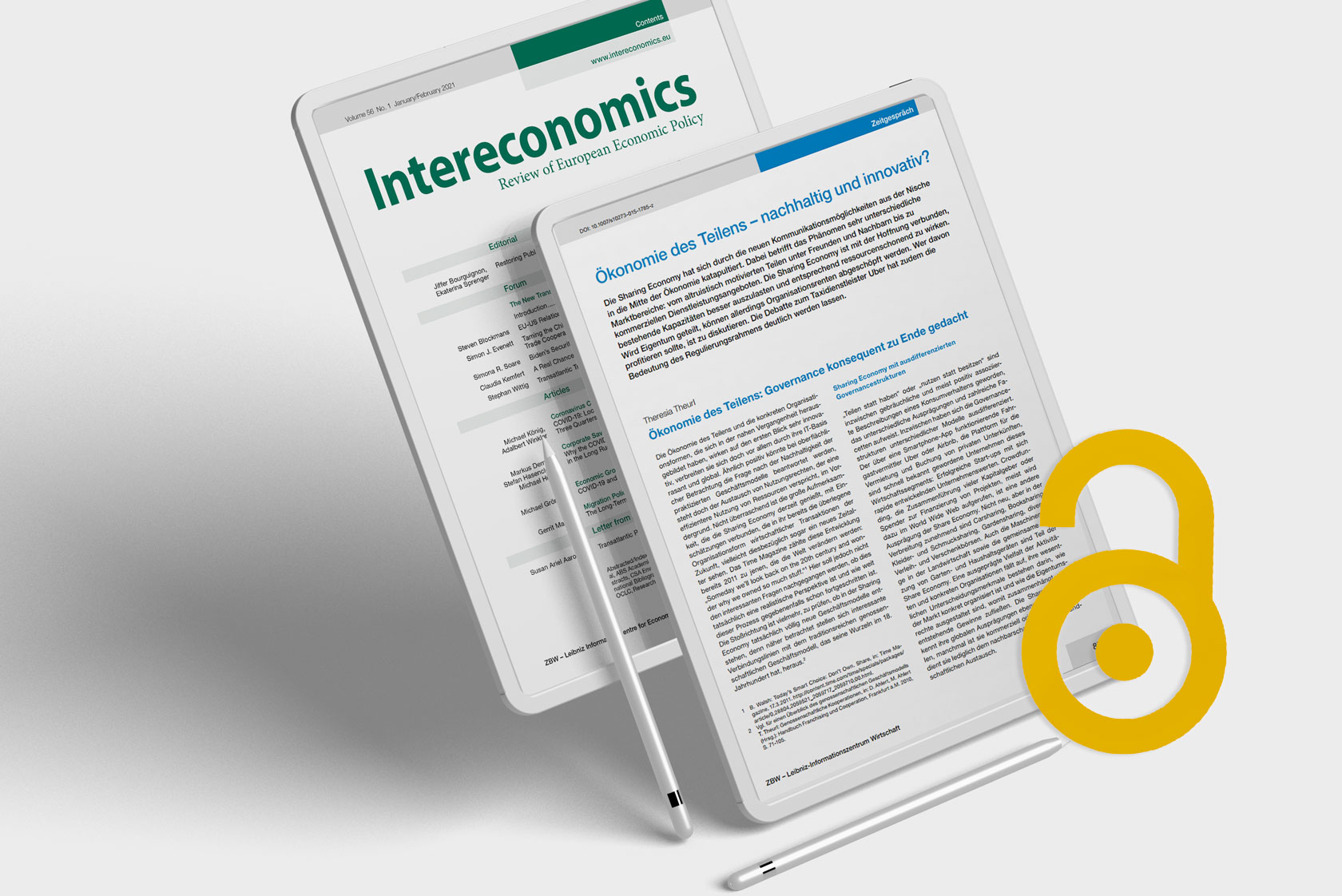
One Year of Open Access: The Journals Wirtschaftsdienst and Intereconomics Take Stock
The publishers of many journals that still appear behind paywalls are considering whether it is worth changing to Open Access. The journals Wirtschaftsdienst and Intereconomics took this step a year ago and are now taking stock.
by Kristin Biesenbender, Christian Breuer and Nicole Waidlein

The economics journals Wirtschaftsdienst – Zeitschrift für Wirtschaftspolitik (German) and Intereconomics – Review of European Economic Policy, published by the ZBW – Leibniz Information Centre for Economics, have been available to their readers in addition to the print version as well as free-of-charge in Gold Open Access (German) since January 2020. All articles are thereby freely available from the time of publication. Charges are not levied from either readers or authors. Instead the Open Access transformation was financed by the ZBW, as will be the permanent Open Access provision.
Previously there was a two-year embargo period allowing only articles older than two years to be freely available online; the newly appeared articles could be accessed only through a subscription. The Wirtschaftsdienst journal has been published since 1916. Articles dating back to 1949 can be accessed for reading, while some of the early articles are available via the anniversary website (German). Intereconomics has been published since 1966. The archive is fully accessible via the website.
For the economic sciences, Open Access offers the possibility to react quickly and transparently to current economic policy discussions and to disseminate research results in a simple way – for example in social media.
The declared aim of the journals is to enable and advance knowledge transfer from the economic sciences to political practice and an interested specialist public, according to editor-in-chief Dr Christian Breuer in the editorial “Scientific Political Advising: Using the Opportunities of Digitalisation” (German).
Free availability of content is essential to ensuring that the knowledge transfer takes place as successfully as possible. This also facilitates access to current economic-political insights for readers from the world of politics, the media and civil society.
After a year it is time to take stock: What has been achieved?
Recognition level has significantly increased
Since 2020 the articles of the journals can be read and disseminated without access restrictions, both via the Springer Publishing House website and also via the individual websites of Wirtschaftsdienst (German) and Intereconomics. Compared to the previous year, the increase in page impressions was 138% for Intereconomics and 64% for Wirtschaftsdienst in 2020. It should be noted that alongside free-of-charge Open Access, other effects such as the interest in articles about the corona crisis have influenced the access figures. During this time, both journals especially benefited from the publication process being extremely short, which allows current articles to be published rapidly. The rates of increase for 2019 over the previous year were still 17% (Intereconomics) and 37% (Wirtschaftsdienst).
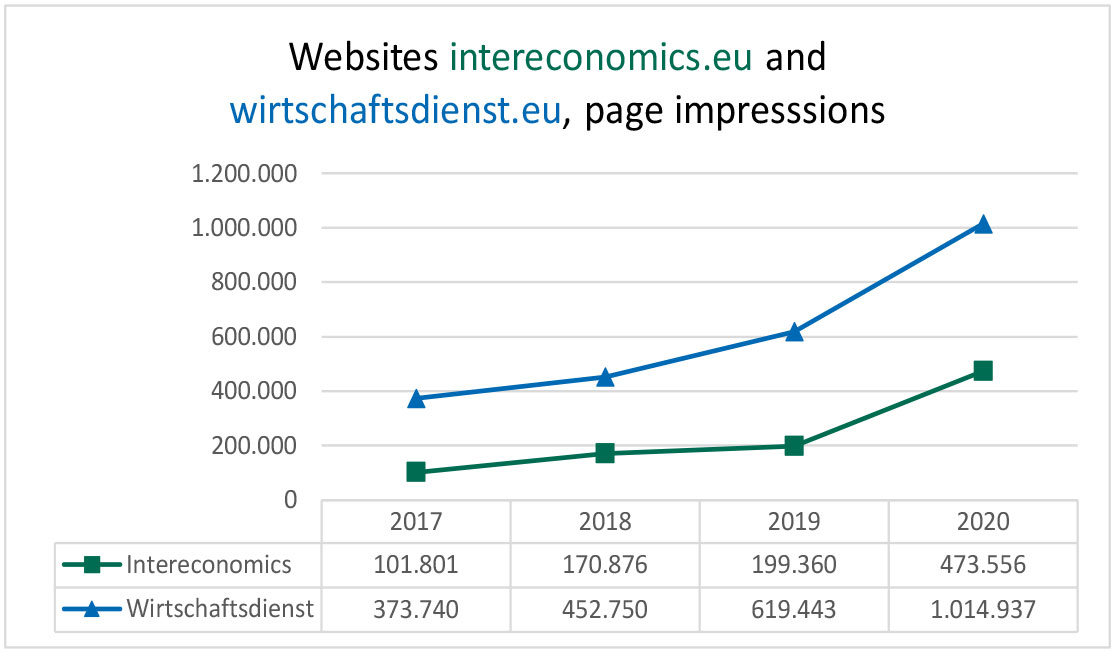
[Copyright: editorial office Wirtschaftdienst and Intereconomics, ZBW]
Open Access also increases the attractiveness of the websites due to the variety of topics offered by current economic policy articles and respected authors. To further improve the search functions on the websites, the already implemented full text search that shows results according to relevance will be expanded in the future to include further functionalities such as sorting according to date or facets (author, keyword, category).
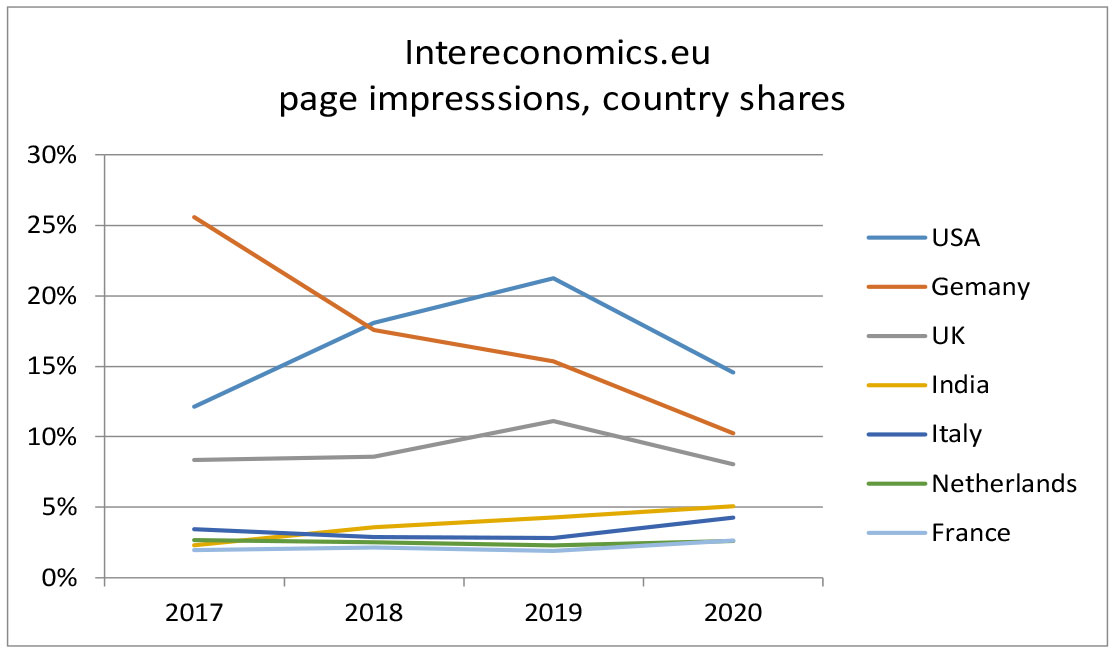
[Copyright: editorial office Wirtschaftdienst and Intereconomics, ZBW]
For Intereconomics it can also be shown that the readership has become more international. The proportion of users from Germany is continually sinking, although the absolute number of page impressions is increasing. In 2020, the proportions from the USA and Great Britain fell, while access from India, Italy, the Netherlands and France and many other countries increased.
Mobile optimisation and accessibility: access for everyone
The journals’ Open Access articles are published on the websites of the journals as PDF files and in HTML. HTML already enables both mobile-optimised and barrier-free reading of the texts. Since 2017 it has been possible to see an increasing trend of websites being accessed via mobile devices. In 2020, this trend slowed slightly, possibly because the pandemic reduced the mobility of readers.
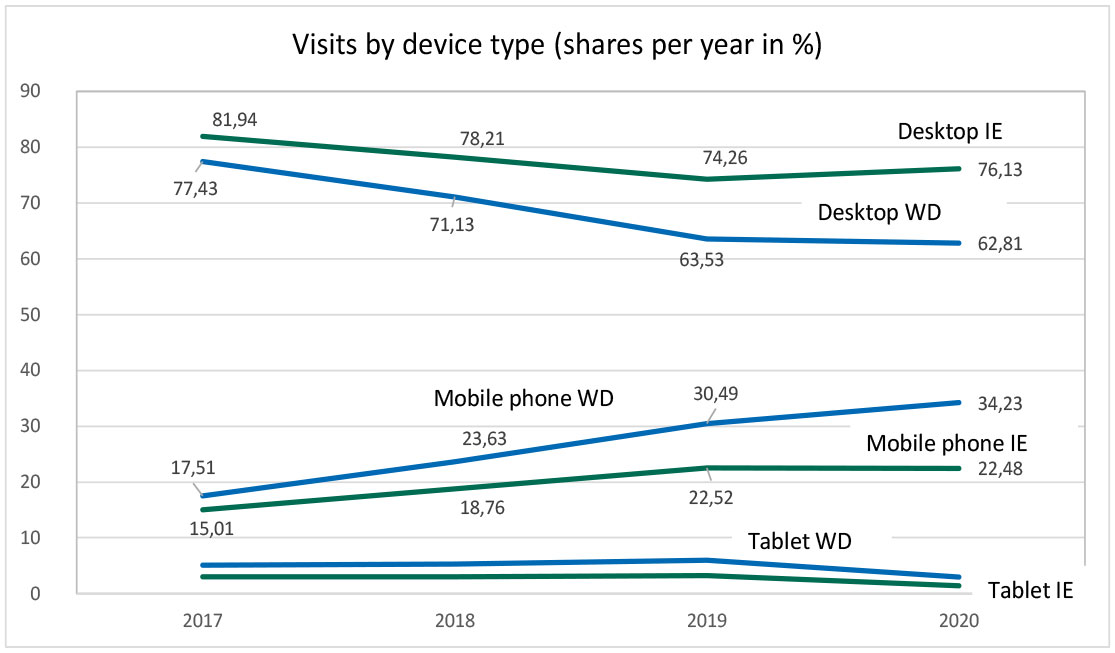
[Copyright: editorial office Wirtschaftdienst and Intereconomics, ZBW]
The transition to free-of-charge Open Access has thus increased the reach of the content.
Attractiveness for authors is increasing
Since the beginning of 2020, the journal articles have been published under the Creative Commons Attribution 4.0 International (CC BY 4.0) license. The articles can thereby be used and disseminated unrestrictedly, as long as copyright holders and source are appropriately cited. This gives authors the scope to publish their scientific findings in an edited format within the scientific community and beyond – for example via Twitter – more easily.
The number of submissions, which also significantly increased in 2020, points to increased popularity among authors. This increase is probably due to other factors alongside the Open Access effect. For example, submissions increased during the second quarter probably owing to the high demand for economic-political discussions in the context of the corona pandemic.
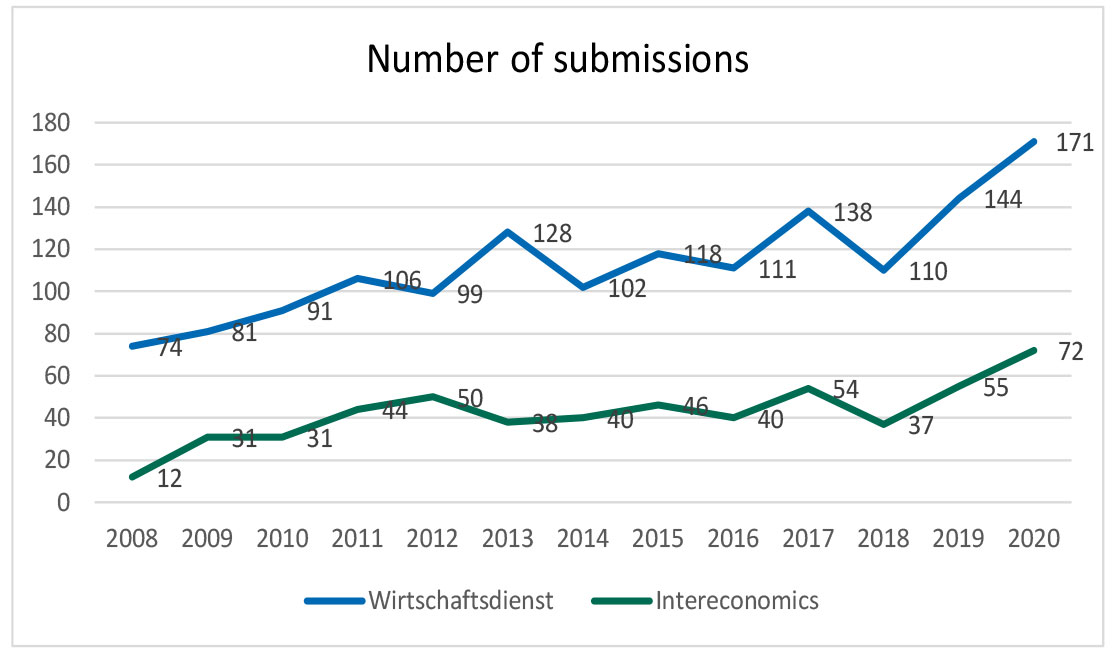
[Copyright: editorial office Wirtschaftdienst and Intereconomics, ZBW]
The significance of Open Access can be further emphasised by the fact that articles appear first online and are subsequently published in the print version (Online First). In 2020, articles – particularly those relevant to the dynamically developing economic-political discussion surrounding the pandemic – were already published in the accelerated “Online First” procedure. In this way, another advantage of the Open Access strategy has already been exploited, and this is to be strengthened in the future: Online First publications give authors the opportunity to contribute scientifically sound findings to current economic-political debates in a timely manner.
Better dissemination of content
The now freely available content of the journals can also be easily disseminated via the journals’ own newsletter and Twitter accounts. The number of newsletter subscriptions and also followers on Twitter has significantly increased in recent years. CC BY license and Open Access offer authors the opportunity to link their articles in social media networks, thereby initiating even wider debate about socio- and economic-political topics in Germany and Europe – one of the core objectives of the journals. This Twitter post provides a good illustration here.
The reputation of the journal can also be increased, thanks to a higher recognition value and citations. The transition to Open Access also allows them to be indexed in other databases such as the Directory of Open Access Journals (DOAJ).
Conclusion: Open Access – a service for science
The articles from Wirtschaftsdienst and Intereconomics have been published in free-of-charge Open Access since January 2020, increasing the accessibility, coverage and attractiveness of both journals. Even if the conversion represented a considerable additional expenditure for the journals’ editors that should not be underestimated, the extra effort was worth the effort. The more so because the timing of the conversion was more than favourable: in the context of the worldwide corona crisis, the journals showed in 2020 that they are the most suitable platform for current economic-political discussions, particularly owing to the very short timeframe from article submission to (online) publication.
On Wirtschaftsdienst and Intereconomics
- Website Wirtschaftsdienst (German)
- Wirtschaftsdienst on Twitter
- Website Intereconomics
- Intereconomics on Twitter
This might also interest you
- InnOAccess-Workshops: Publishing Free-of-Charge Open Access Journals Sustainably
- Open Access Journals: Who Is Afraid of 404?
- Open Economics: Study on Open Science Principles and Practice in Economics
- Open Access for Monographs: Small Steps along a difficult Path
- Opscidia: Fighting Fake News via Open Access
- Open Access Days 2020: Highlights & Tips
This text has been translated from German.
Kristin Biesenbender is a scientific editor of Wirtschaftsdienst at ZBW – Leibniz Information Centre for Economics and PhD Candidate at the University Hamburg in the field of sociology, especially science studies. .
Portrait: Kristin Biesenbender©
Dr Christian Breuer (German) heads the journal editorship of the two economic policy journals Wirtschaftsdienst (German) and Intereconomics of the ZBW – Leibniz Information Centre for Economics. He can also be found on Twitter.
Portrait: ZBW© Photographer: Sven Wied
Dr Nicole Waidlein is academic editor of the journal Wirtschaftsdienst (German) of the ZBW – Leibniz Information Centre for Economics. She can also be found on ORCID.
Portrait: ZBW©, photographer Elisabeth Flieger
View Comments

Agile Working: Kanban Offers Flexibility and Transparency for Innovation Projects and Open Science
Could more agile working in libraries and other information institutions make a...

